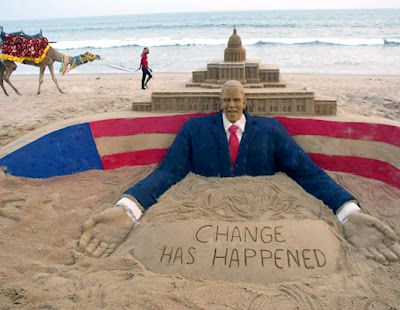NO!
The question is answered. How? That's what the post is all about. Just spare 4 minutes of your life's time to read a counter view on why
it does not make sense to invest in real estate.
I am sure, most of the people in the world have hypnotized you by now that investment in real estate is the best investment. Especially, if you are a visitor from the eastern countries, particularly India, I can understand your emotions for real estate. Put all your emotions aside, and let logic and rationality come into the fore of your mind when it comes to money matters.
First, just ask a question to yourself, are these fans of real estate investment financially literate? Probability is that 9 out of those 10 brains you know would not be aware about what goes in he capital markets, stock markets, etc. All their brains know is cash in, cash out without any concern for
time value of money.
We have been brought out to think that real estate is an asset, not a liability. It is both, let us elaborate on the difference which is more important for you. For living, you and your family would not need more than a 2BHK (bedrooms, hall and kitchen) or a 3BHK flat. Sure, that is an asset, or rather a necessity as you do not have to worry about rents and any conditions laid out by your owner.
But, if you possess any more property than your necessity of living, it is all a liability.
.jpg) |
| Image Credit: Examiner.com |
How? The taxes to be paid, the interest to be paid in case if it is on loan amount, it's maintenance, etc. You never know what's going on the land you bought, is it safe or not? It does not ensure you cash-in-hand. Buying property and selling off is another tiresome process which would involve real estate agents or brokers, their fees, selling it would take some time depending on the demand supply equations, real estate agent's commission once again.. Rather than this, think if you can potentially surf the internet and
make yourself more financially literate!
Now, how exactly is that a liability? Our assets and liability are measured by cash value, where these definitions have come from accountancy. If you are aware,
economics>finance>accountancy.
Robert Kiyosaki's book, 'Rich Dad Poor Dad' offers a practical and different world-view of
assets and liability than the normal. It is based on the
cash flow and
not cash value. Out of the 3 major financial statements that a corporation gives out every year, viz., Income Statement (also called Profit and Loss Statement), Balance Sheet and Cash Flow, Cash Flow has it's own and highest importance for the financial community. And that is why, I think, measuring assets or liability based on
cash flow is more important than anything else.
If you own a house, which is not rented, or rather no one is ready to take it on rent, you are unable to maintain which depreciates value, and you are supposed to pay property tax, water bills, electricity bills howsoever small they may sound, it is not an asset from any viewpoint. It is a liability as
there is no inward cash flow involved although cash value appears high.
Moe importantly,
cash is the emperor whereas profit is the king is an oft repeated statement in the world of finance. You might think that it would be profitable to sell it in the long run (with all the costs), but it would still involve time and no cash-in-hand which is more important. Putting the same amount in banks savings account, time deposits, investment plans, could have potentially turned out better with lesser hassles as you could do all this with the help of a few clicks!
If you believe in the hypothesis that
real estate/property rates never fall, think again. Property rates have seen a steady downfall in
UK and
US! Nothing is recession proof.
Most importantly, if you believe there would be a real estate boom at some time in the future, which I am sure there would be one, a smart move would be to buy stocks of cement companies, lock manufacturing companies, paint companies, furniture companies, real estate companies, retail sector, FMCG sector, as all of it is bound to rise as real estate goes up! It would take only a few clicks to do this and
you would be helping the economy of your country as well. How? The very money that you would put in shares or other financial instruments would be used by these major companies to fund their operations. They would become stronger, grow and create more job opportunities in future. On the contrary, what would a dead investment in some lone land at a far off place contribute to the economy except that agent's commission and a minuscule tax for the government?
And finally, there are hoards of people looking for buying property when not needed who are financially not literate. Leave it for them, they would keep buying! I have always wondered why those of my friends and acquaintances investing in shares have had a blind eye towards real estate... A few reasons were listed, a few would be written later in coming blog posts, so stay subscribed or keep visiting!





.jpg)